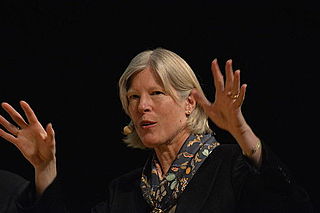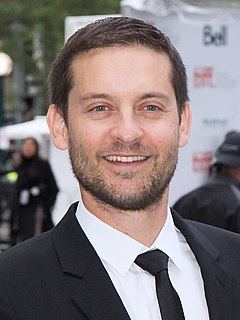Ein Zitat von Anna Quindlen
Ich glaube schon, dass Menschen, die jetzt in den Sechzigern und Siebzigern sind, selbst in diesen schwierigen Zeiten ein anderes Leben führen als ihre Großeltern. Viele von ihnen sind aktiver, viele arbeiten noch, was nicht der Fall war, als unsere Großeltern in den Sechzigern waren.
Verwandte Zitate
Oft erreichen Menschen ein bestimmtes Alter und geben auf. Die Frank Capras, die Billy Wilders, solche Regisseure, haben mir immer leidgetan, weil sie mit sechzig aufgehört haben. Warum solltest du aufhören? Denken Sie an die großartige Arbeit, die sie in ihren Sechzigern, Siebzigern und darüber hätten leisten können.
Heutzutage gibt es viel Sechziger-Bashing, mit dem ich überhaupt nicht einverstanden bin. Ich habe das Gefühl, dass zu dieser Zeit äußerst wichtige Ideale in den Vordergrund des kollektiven Bewusstseins gerückt wurden. Zugegebenermaßen war der Drogenkonsum so weit verbreitet, dass unsere Generation als Gruppe nicht in der Lage war, unsere Ideale in großem Maße zu verwirklichen. Aber viele der Menschen, die in den sechziger Jahren jung waren und von diesem kollektiven Ethos am meisten berührt wurden, sind immer noch berührt.
Ich glaube, unsere Großeltern waren Victor Frankenstein. Im Grunde bin ich ein zutiefst unnatürliches Wesen, vor dem sich Mrs. Shelley instinktiv fürchtete. Ich esse nicht nur ihre heiligen Kühe, sondern ich esse sie auch mit Ketchup. Obwohl ich ihren Standpunkt verstehe, denke ich, dass transgressive Monstrosität und Manipulationen an der Lebenskraft viel mehr Spaß machen, als sie vermutet hat.
Wir wollten besser erfahren, warum wir lebten, und nicht nur ein besseres Leben führen, und so machten sich die Menschen auf die Suche nach Dingen. Das Tolle, was damals von ihnen kam, war die Erkenntnis, dass es im Leben definitiv mehr gab als den Materialismus der späten Sechziger und frühen Sechziger. Wir waren auf der Suche nach etwas Tieferem.
Im Allgemeinen leiten ältere Menschen in den Fünfzigern, Sechzigern und Siebzigern die meisten Länder und sind CEOs von Unternehmen. Das heißt nicht, dass es keine Unternehmer gibt, aber wenn die Jungen in jeder Hinsicht besser wären, gäbe es keinen Grund für die Alten. Unsere Lebensspanne spiegelt unsere besondere Lebensstrategie wider.
In den sechziger Jahren hatte die Wiederverwertung der Popkultur, die sie in Pop-Art verwandelte, und Camp ihren eigenen satirischen Reiz. Jetzt beschäftigen wir uns mit einer anderen Art des Recyclings. Filmemacher verleihen Filmen der Vergangenheit eine Autorität, die diese Filme nicht hatten; Sie überhöhen Bilder, die vielleicht nie den Glauben erweckt haben, Bilder, die nicht mehr als stenografische Gesten waren, und sie nutzen sie nicht als überlebensgroße Witze, sondern als Altäre.
Das Schreiben der Beatles oder Johns und Pauls Beitrag zu den Beatles in den späten Sechzigern hatte eine gewisse Tiefe, einen reiferen, intellektuelleren Ansatz. Wir waren andere Menschen, wir waren älter. Wir kannten uns auf ganz andere Weise als damals, als wir als Teenager und in unseren älteren Zwanzigern zusammen schrieben.
In den Sechzigern, Mitte der Sechziger, waren Comics plötzlich so angesagt, dass Studenten und Hippies sie lasen. Also war ich einer von ihnen und begann zu lesen, im Grunde war es zu diesem Zeitpunkt die Marvel-Renaissance. Es waren all ihre neuen Charaktere, Spiderman und die X-Men und die Fantastic Four.
Ich hatte das Gefühl, ein Außenseiter zu sein. Ich glaube, was mir passiert ist, hat dazu geführt, dass ich das Straßengefühl entwickelt habe, Menschen zu beobachten und herauszufinden, was sie antreibt, und mich zu fragen, ob ich ihnen vertrauen kann oder nicht. Ich besuchte viele Schulen entlang der kalifornischen Küste, schloss kaum Freundschaften und wohnte bei Tanten, Onkeln und Großeltern, während meine Eltern versuchten, über die Runden zu kommen. Es war hart. Wir hatten kein Geld.
Als ich aufwuchs – sagen wir in den Fünfzigern – existierten die Dreißiger für mich noch nicht einmal. Ich konnte sie mir überhaupt nicht vorstellen, daher erwarte ich nicht, dass jemand, der jetzt erwachsen wird, überhaupt verstehen wird, worum es in den Sechzigern ging, genauso wenig wie ich es in den Dreißigern oder Zwanzigern konnte.































